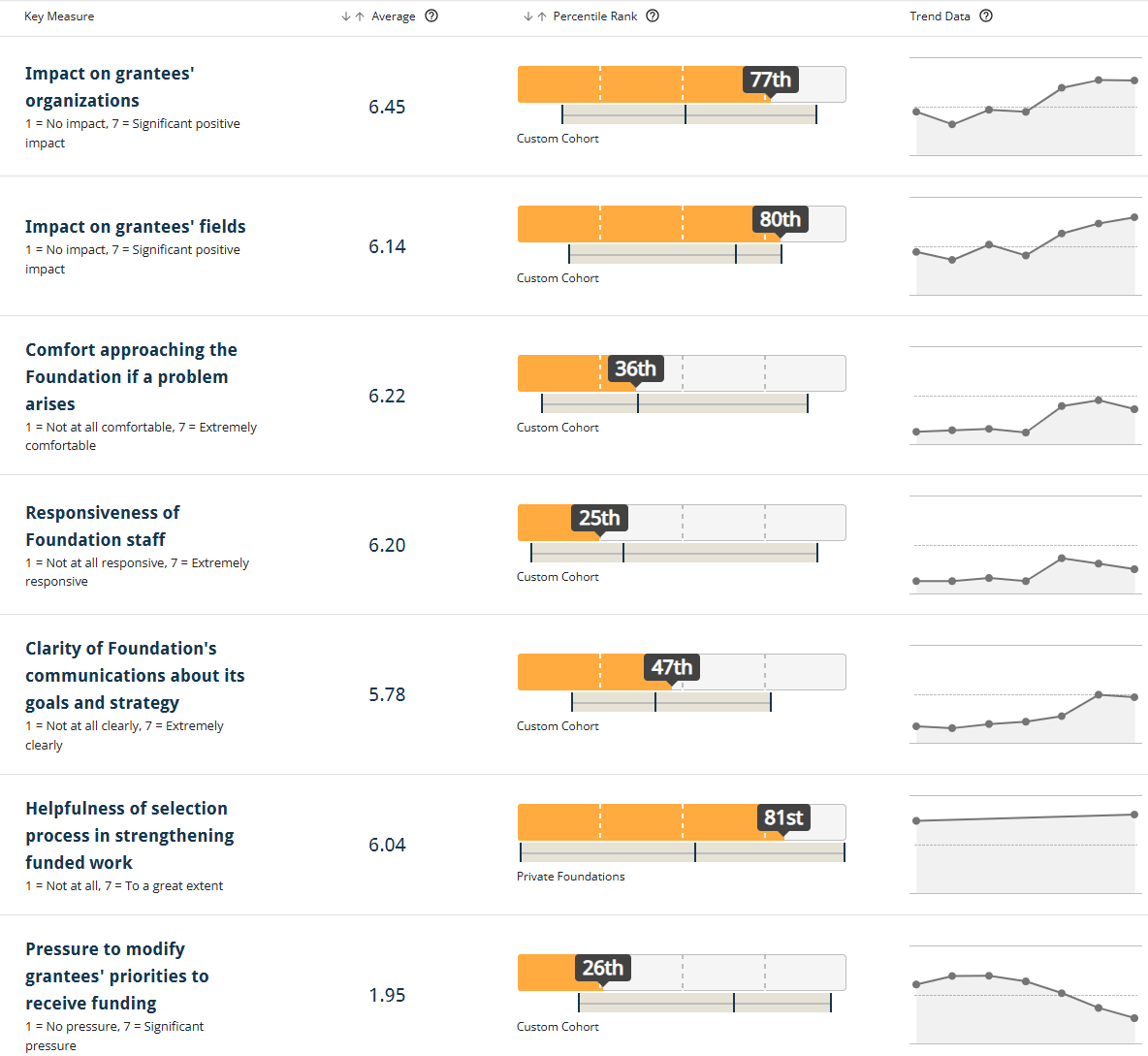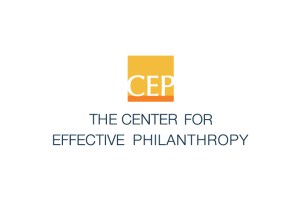Closing the feedback loop: Results from our Grantee Perception Survey
At the Ford Foundation, we are committed to being responsible and responsive grantmakers. As funders, we recognize the uneven power dynamic that exists in philanthropy and the limited opportunities for funders to receive the kind of feedback necessary to improve our relationships to the organizations we support. We know that if we want honest and candid feedback, we need to offer channels for anonymous, candid input.
Every two years, we partner with the Center for Effective Philanthropy (CEP) to issue the Grantee Perception Report (GPR), a gauge of how our grantees view us, the grantmakers. Between 2008 and 2017, we received four surveys that gave us consistent feedback: We had much to improve. But in 2017, we made concerted efforts to apply this feedback to our work. These efforts included streamlining our grantmaking systems making significant commitments to multiyear general operating support through our Building Institutions and Networks (BUILD) initiative. This led to significant improvements in our 2020 survey and 2022 surveys.
We are proud that our most recent survey shows that we are maintaining and building on many of these achievements. We celebrate this promising news, while acknowledging that there is still room for improvement in important areas. We are committed to doing better. As part of that commitment, we are sharing the top findings of the survey and our plans to address this invaluable feedback.
What we learned
We continued on an upward trajectory, with grantees’ perceptions at their highest-ever point on a number of key issues.
The foundation received its highest-ever rating for impact on grantees’ fields of work, and maintained our 2022 historic high for impact on grantee organizations. We sustained similarly strong ratings for how well the Foundation understands grantee organizations’ strategies and goals. In written comments, grantees highlighted the critical support Ford provides for their organizations and the outsized impact Ford has on their fields through its key role as not only a funder, but critical leader that nurtures entire fields and ecosystems of organizations working toward social change. Grantees also highlighted Ford’s role in supporting networks of organizations rather than isolated initiatives.
We were happy to learn that ratings were again at an all-time high for the extent that the selection process was a helpful opportunity to strengthen the efforts funded by the grant as well as for the appropriateness of effort required in the application relative to funding received. Respondents also reported historically low levels of pressure to modify their priorities in order to receive funding. These significant improvements on our selection process suggest we are on the right track, and we continue to work toward streamlining our processes.

Opportunity for improvement in our responsiveness to grantees.
Even as we celebrate these strong results, there are places where we see need for improvement, particularly areas where we’ve made little progress over the years and where we lag compared to our peers. The feedback related to our responsiveness to grantee organizations is an area of particular concern. This is an area where we have struggled historically, and our numbers since 2020 are not trending in the right direction. One of the most common suggestions for improvement was more frequent and substantive interactions between Ford staff and the organizations we fund and quicker and more substantive responses from us when grantees reach out over the course of their grant.
While the findings we share here are about the foundation overall, we also recognize that grantee organizations often have different experiences depending on the program where they receive funding and the regions where they work. Our goal is to minimize that variability wherever possible so that all organizations we fund consistently have positive experiences.
Next steps
While we are encouraged by these most recent survey results and pleased that we’ve seen positive trends since 2020, we are committed to improving.
We plan to make the following commitments to improve our work with our grantees:
- Prioritize our responsiveness to grantee partners and create the space for more substantive conversations between program officers and organizations
- Continue to employ the use of multiyear, general support in our grantmaking and use additional, non-monetary institutional support to grantees where appropriate
- Work to ensure more consistency within teams and across the foundation on grantee experience with our processes, and continue to decrease the amount of organizations they spend on grant requirements where appropriate and possible.
These survey results are just one part of the way we want to hear from you. Please reach out to Ford staff if you have additional suggestions or any questions. We appreciate the remarkable organizations in our community and look forward to strengthening our work together.
